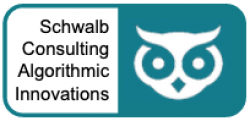Speaker Details


Edward Schwalb
Dr Schwalb has received his PhD in artificial intelligence from University of California Irvine. He has more than 20 years of experience in implementing intelligent systems for a wide range of industries, including defense, consumer electronics, financial, healthcare and engineering. He has authored a technical book, published in major journals and edited technical standards, and is credited with more than a dozen patents. At MSC software, he was an architect and member of a product team winning more than a dozen awards in three years. At ASAM he was a key contributor to the OpenODD approach, specifically focused on the specification of uncertainty and acceptable risk. At Volkswagen Commercial Vehicles, he supports the development of tooling for Operational Design Domain specification and validation. His passion is the development of methods to engineer inherently safe drivers, through quantification and validation of safety. Edward will be supported for this workshop by a team of experts from Volkswagen Commercial Vehicles, the SAE and dSPACE.Presentation
Implementing ODD to support autonomous vehicle development, validation, road testing and compliance communications
The operational design domain (ODD) is regarded as a critical component for establishing trust and maintaining compliance for autonomous driving systems. There is broad consensus that a common understanding is needed on the specification and development of credible ODD descriptions that support multiple stakeholders. This workshop will clarify the scope of the ODD, and how to balance between over-specifying and under-specifying to avoid unnecessary legal exposure due to over-commitment with sufficient information and yet instill confidence. It will review the related best practices including UL 4600, AVSC, ISO 35403, OpenODD and SAE On Road Automated Driving (ORAD) activities. It will review exchange formats, taxonomies, modular specification of ODD conditions and applications to operational domain (OD) datasets. It will discuss how ODD can be developed and understood incrementally, supporting both internal and external stakeholders. The presentation will review practical methods and commercial tools that can integrate ODD in the validation process. Upon completion, workshop participants will have a comprehensive end-to-end understanding of the role of an ODD, methods to develop and communicate specifications, and the trade-offs associated with over- and under-communicating in the context of various standardization activities and best practices.